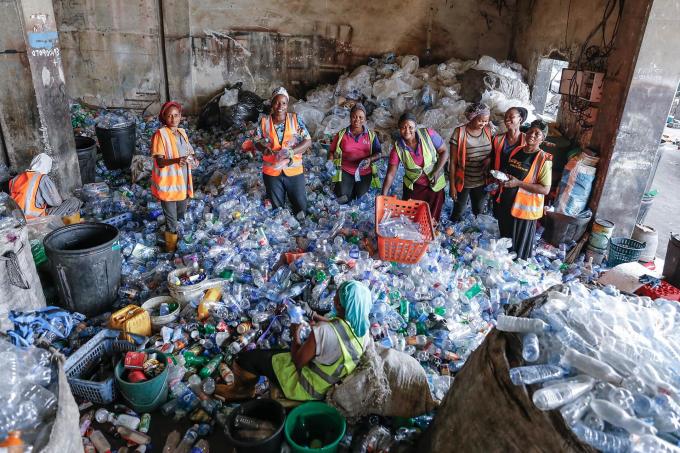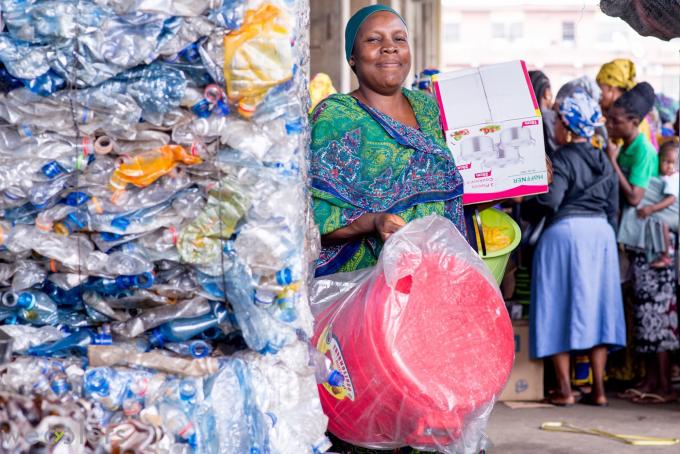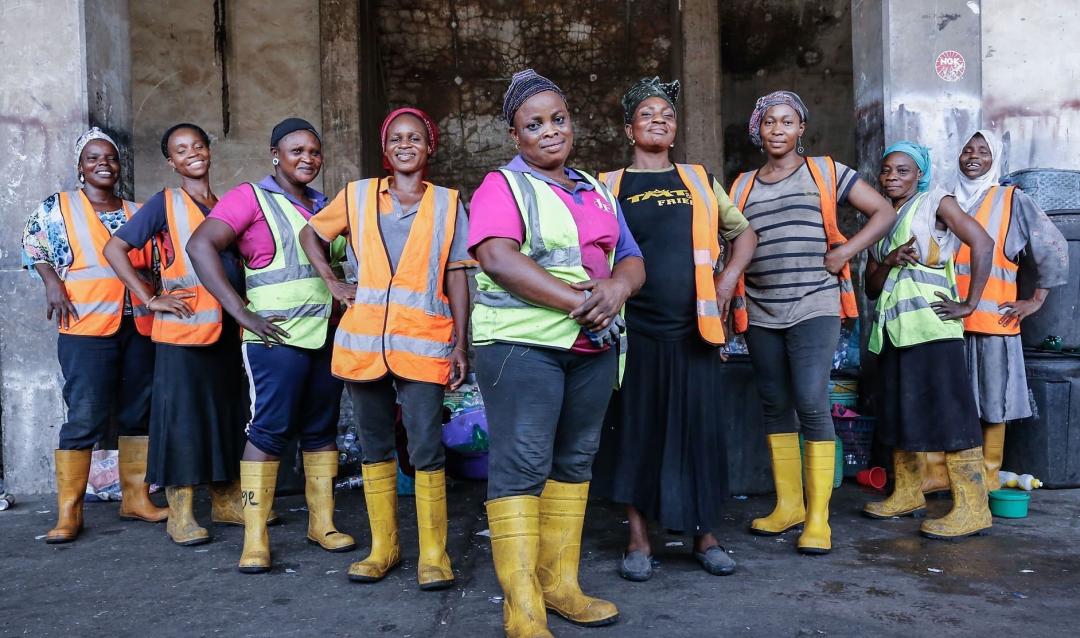Nigerian social enterprise weighs in on benefits and drawbacks of grants and venture capital
Can you introduce yourself and tell us a little bit about Wecyclers? What do you do and how do you serve people at the base of the pyramid?
My name is Olawale Adebiyi, and I am the CEO of Wecyclers, a social enterprise that engages people at the bottom of the pyramid by helping them capture value from their waste. The world has a massive waste crisis. Over a billion people live with the waste that they produce on a daily basis and cannot find means to dispose of it. This can cause issues like malaria and disease, as well as other challenges.
We work to understand how they deal with their waste currently and we provide incentives for them to recycle and sort plastics, cardboard, paper, and aluminium from organic waste. We go to their household to collect the materials. We then take it back to our facilities and process it. We sell it to recycling companies that add value and make finished products from it. We use the revenue that we generate to provide incentives for people to continue giving us waste.

How is your company different from others in your field?
If you look at the waste management sector, we are more focused on the community and people at the bottom of the pyramid. Other waste companies charge a fee to pick up waste, but ultimately they don't really care what happens to that waste. Their goal is to take it from point A to point B.
Wecyclers is committed to both ends of the spectrum. We are committed to helping solve the poverty issue, which is about 80% in Nigeria. We are also committed to ensuring that the recyclable materials that are being generated don't end up sitting in dump sites or the ocean for the next thousand years.
What were the biggest challenges that you encountered when developing your business model?
We have encountered a lot of challenges in the process of running our business over the past seven years. Initially it was funding and making people understand why we were doing what we were doing. People thought we were crazy. People thought we were going to fail, but we stuck with the programme. We stuck with our vision and we kept pushing forward, and we grew as a result.
Now the challenges that we are facing are being able to scale and grow our company to a level where it's highly profitable because as a business you want to be profitable. We want to put our profits back into the communities, the industry to create jobs and also to help give the workers, especially in the waste sector, a better life.

How are you funded or how do you finance yourself today?
We won a lot of pitch competitions initially. We applied for a lot of grants. We got some, not all. We've been lucky enough to partner with some very good organizations like Unilever and DHL that have been very good partners for us and supported us in our struggle.
This is how we've funded ourselves and survived up to this point. We've never collected any kind of loans from banks because we can't afford to and our company doesn't have the balance sheets to support taking loans.
Now, we have actually just closed on a major investment with a strategic partner. That has increased our capacity. We hope to take more capital to grow and ultimately build a facility to make our own products.
What is the difference between getting grant capital and venture capital?
I think the biggest difference is autonomy in some ways, because once you begin to raise capital from investors you have to work with the investor on understanding their goals and making sure that your vision is aligned with theirs. We've been able to be selective about who our investors are. I don't just take any money. I really focus, first and foremost, on understanding if they are aligned with our mission. And if they are not, then we are not going to do business. We have had to turn away a lot of money because we don't just want to look for it in the conventional private equity space. We want somebody that really believes in our mission and wants to help solve the problems we are driven by.
Do you feel that it's easier to get grant funding than to get venture capital?
Yes, I believe so. I think it's easier because even though your odds of getting awarded grant money might be lower, you are able to have a much more sustainable business if you're successful in securing grant funding because it is more “patient capital.” This allows you to do more work.
How are expectations from donors different compared to the expectations of commercial investors?
It's pretty straight forward. A donor doesn't really care about your returns over a period of time. They're more focused on your impacts and how much you're doing to help solve the problem. An investor wants to take back 18 to 20% in five years.
Is it easier or more difficult to navigate financing options other than grants?
It's more difficult.
One of the things that we have seen is that there's a massive disconnect, particularly in West Africa, between funders and companies that are working in this space, particularly social entrepreneurship. There's a lot of investor money out there for social entrepreneurship but they're just not finding their way to these small entrepreneurs. A lot of the reason is because people all worry about risk. Risk is something that is driving away investors and Africa is a risky place. West Africa is a little more risky. Lagos is probably the riskiest place to invest in Africa today, so investors are very scared to put their money there.
Having an unknown commodity pushes investors away from investing in this space, I think. What we've tried to do is be very open about the work we do to be a known commodity, so investors feel more confident about investing in us.
Have you also ever considered impact investment?
That's a very touchy subject because impact investors can claim to be impact. I think the proof is really in the pudding. All the impact investors I have spoken with want the same returns as the conventional investors. They want 20% in five years. I don't think I have met anybody yet who says, "You can keep my money as long as you want and just keep doing good stuff."
What are your plans for the future?
To be the largest recycling company in Africa. We are part of the Fair Plastic Alliance and in partnership with OxFam, our goal is to engage stakeholders, primarily beverage companies, to create a more fair and equitable supply chain.

We are also building plants in the community so that we can increase value and return that value back to those communities and the workers in the plant. That's the future we want for recyclers.
We are looking to raise about a million dollars in the next twelve months. Then, the next phase will require an additional four million or so. Ultimately, we are looking to have about a $10 million plant in Lagos that makes bottle-to-bottle recycling. In the past year we have increased over two-fold in terms of our collection volumes and our team size, and we are continuing to grow every day.
Thank you.
